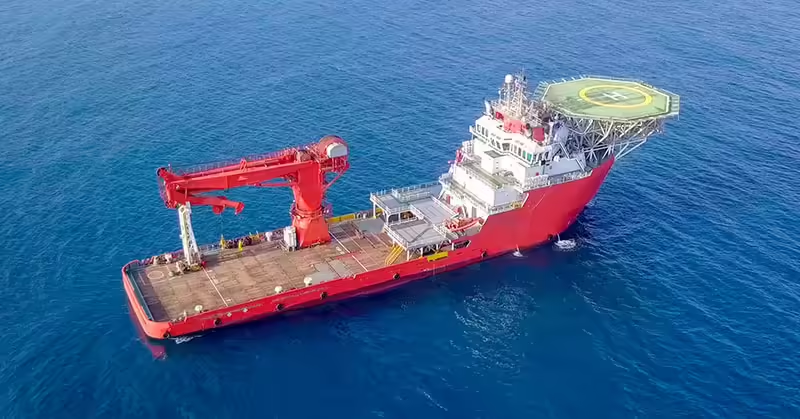Injured While Working on a Vessel?
July 6, 2020

The Gulf Coast of Mexico and other coastal regions surrounding the United States involve a lot of highly and unreasonably dangerous work. Each day, many incidents lead to serious injury or wrongful death to the thousands of “seamen” who perform these arduous tasks offshore on “vessels.” Typically, these cases fall under the “Jones Act.” Unfortunately, these injuries occur because billion-dollar oil companies place profits over safety and fail to ensure that their employees are equipped with the necessary resources – time, equipment, and manpower – to perform their jobs safely. History has shown that nothing will change unless these employers are forced to take responsibility for their actions.
What is the Jones Act?
The Jones Act is based on US Federal law that compensates seamen or family members of seamen who sustained injuries while working offshore on a vessel. In an offshore case, many companies may be responsible for the injuries or loss to a loved one. These claims are unique given the number of parties involved, coupled with the extensive investigation that must be performed to navigate all the issues involved.
What are my Legal Rights as a Seaman?
To know if you have legal rights as a seaman under the Jones Act, you must first establish if you qualify at the time of injury. Oftentimes, people assume that being a seaman requires controlling the ship or its navigation. This is wrong. To qualify as a seaman under the Jones Act, it is not incumbent for the injured party to have aided in navigating the vessel.
In one case, The United States Supreme Court declared that it is not the employee’s particular job determinative of his status as a Jones Act seaman but his connection to a particular vessel.[1]
The United States District Court in the Eastern District of Louisiana gave the following definition to the word “seamen”[2]:
“For an employee to be a “seamen” the employee’s duties must contribute to the function of the vessel or to the accomplishment of its mission, and, most importantly, the employee must have a connection to a vessel in navigation, or to an identifiable group of such vessels, that is substantial in terms of both its duration and its nature.”
When an injury occurs on a vessel (see definition below), it is important to consult with an experienced attorney to know if you or a loved one have legal rights.
What is the Definition of a Vessel?
The next step is to see whether the incident occurred on a vessel as defined by law. Historically, a vessel has been defined as a watercraft (ships, barges, tugs, or cargo carriers). In the early 2000s, however, the Supreme Court expanded this definition to include most offshore oil rigs, dredges, jack-ups, and semisubmersibles. Ultimately, a wide array of ships, rigs, and platforms could qualify as a vessel.
This is yet another example of why it is important to seek legal care from experienced lawyers familiar with these nuances regarding vessels to pursue reasonable and fair compensation under a Jones Act claim.
Financial Compensation for Claims that fall under the Jones Act
Seamen, or family members of a seaman, have a right to be compensated for any resulting injuries or damages on a vessel. Where applicable, these damages can include:
- Past and future medical expenses;
- Past and future pain and suffering;
- Past and future disfigurement;
- Past and future impairment;
- Lost wages in the past;
- Loss of earning capacity in the future;
- Funeral expenses; and
- Loss of consortium.
Your Right to protect Yourself and those You love
It is your right to receive competent answers to your questions. As noted above, there are a lot of legal intricacies and fact-finding that must be fleshed out in offshore cases. Part of this process is knowing who qualifies as a seaman and whether or not the accident happened on a vessel. Given the serious nature of the different kinds of injuries involved in a Jones Act claim and the inevitable lifelong financial impact, these determinations should be handled by a law firm with experience and results.
Our experienced Jones Act lawyers at Morrow & Sheppard LLP, who can help you seek maximum compensation for your loss, call 800-489-2216 or contact us online today.
[1] McDermott Int’l, Inc. v. Wilander (1991, US) 112 L Ed 2d 866, 111 S Ct 807, 91 Daily Journal DAR 2056, 1991 AMC 913 [2] Parker v. Jackup Boat Service, LLC, 542 F.Supp.2d 481, United States District Court, E.D. Louisiana.John Sheppard is an experienced trial and personal injury lawyer who prides himself on working harder than the competition, aggressive legal representation, strategic thinking, and successful results. John particularly enjoys trying complex cases such as refinery and plant explosions, maritime accidents, oilfield accidents, wrongful death, and more. Learn more about John.


















































